Camila: Encouraging gender equality in the heart of Bolivian highland
"We are young people who are revaluing our culture. But, at the same time, we make changes in the field of gender equality. Not to change everything, as many people think, but simply to improve the culture we have," reflects Camila.
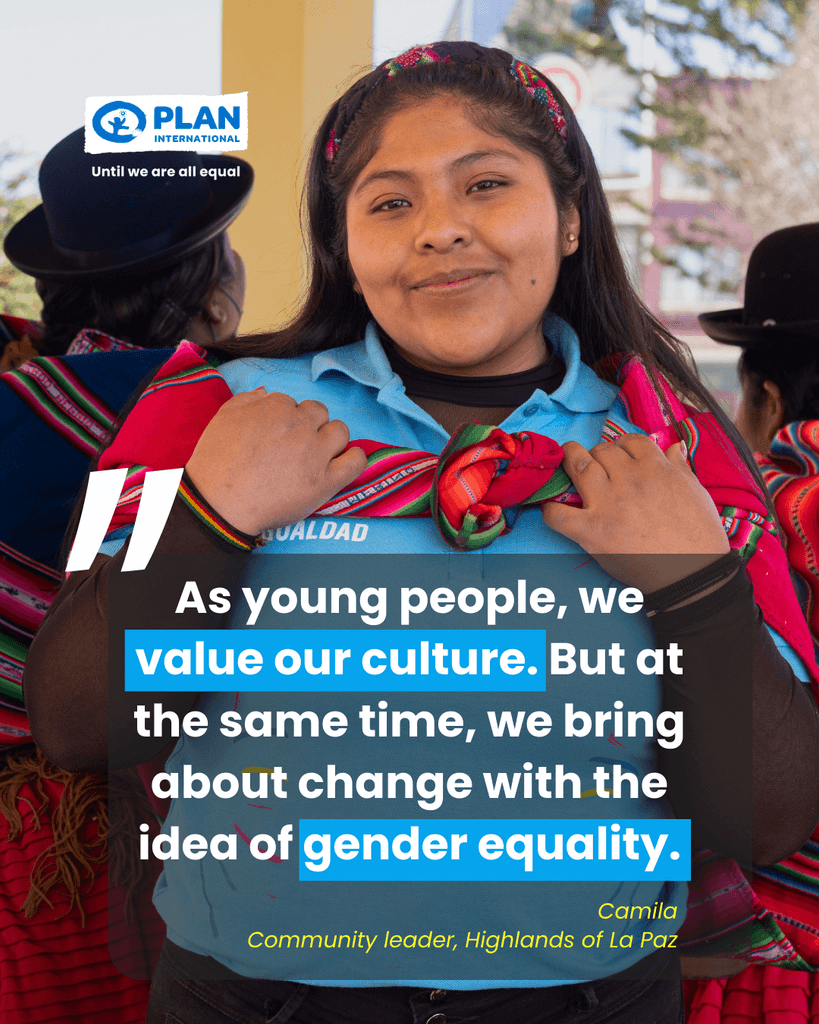
She is surrounded by traditional fabric (aguayos), ponchos and traditional skirts (polleras) of a fiery red colour. In the town square of her community, the conversation flows naturally from Spanish to Aymara and vice versa while the incessant highland winter wind blows.
Her municipality is located at almost 4,000 meters above sea level, at just 50 kilometres from the seat of government, La Paz-Bolivia. Along with other neighbouring towns, it has an important historical legacy in terms of community, social and political organisation.
Having a discussion with some of the native authorities of her municipality, Camila advocates for the need for awareness-raising workshops on violence against women.
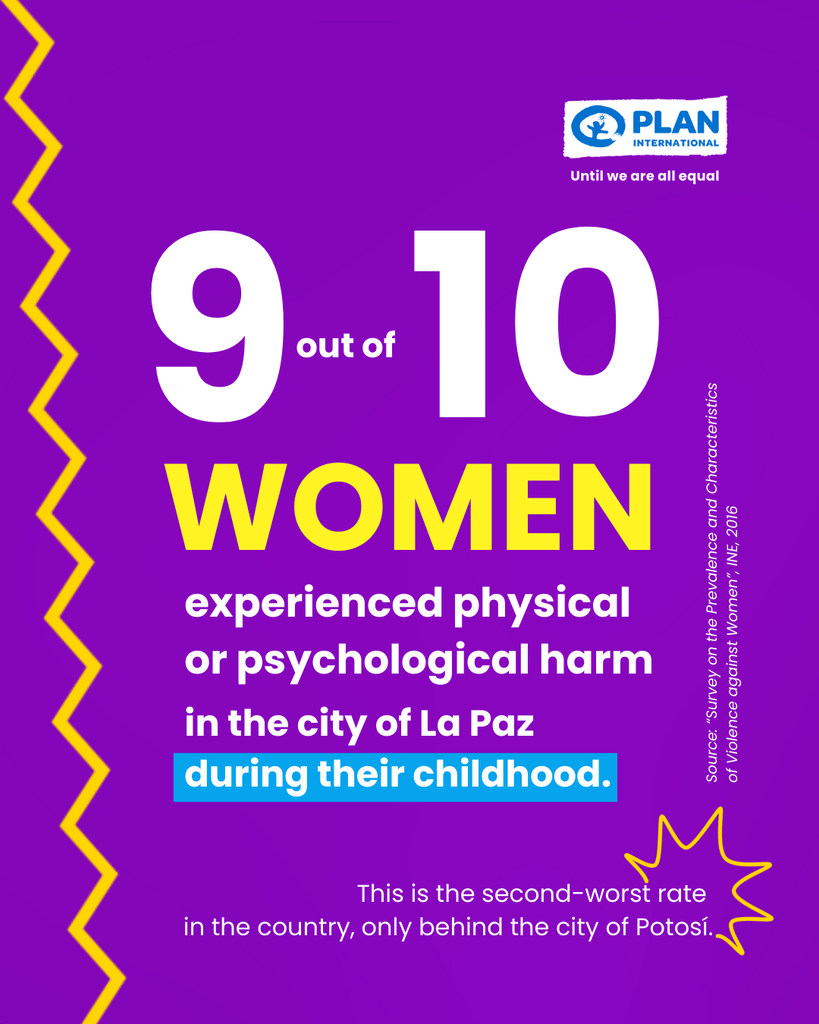
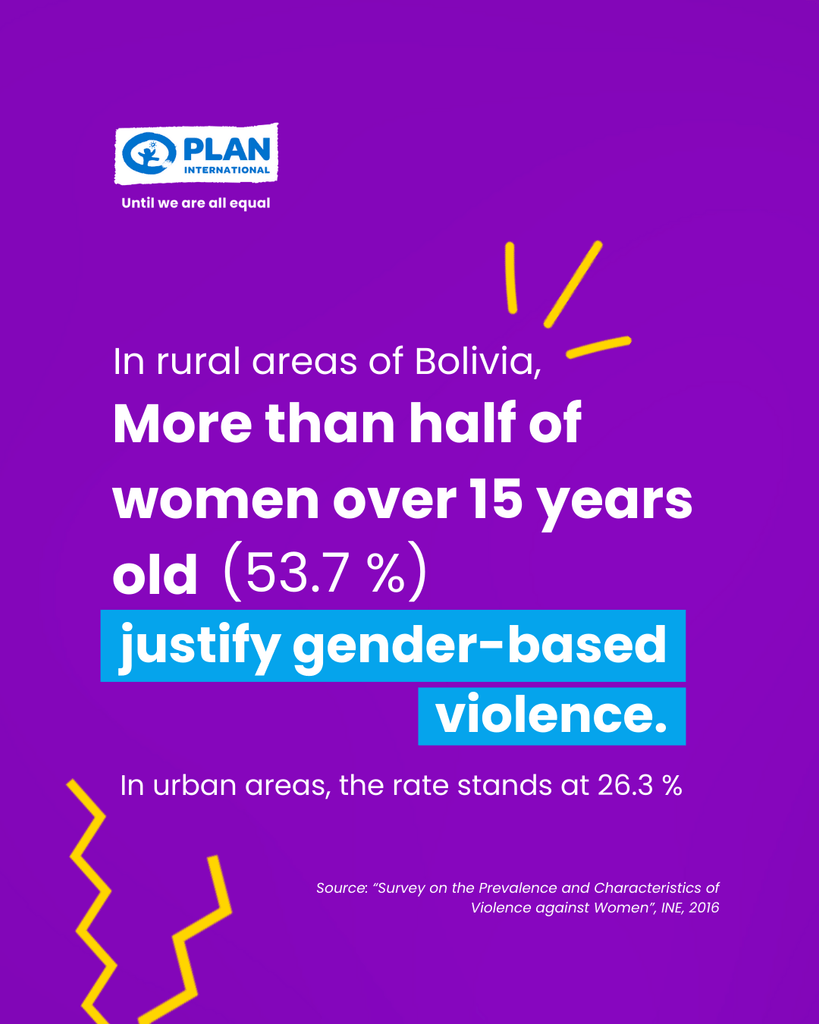
The women and men around her listen to Camila attentively, nodding in agreement from time to time to give her their support.
In Bolivia’s rural area, more than half of all women over 15 years of age (53.7%) justify machista violence (2016). In urban areas, this indicator is 26.3%.
The most common patriarchal arguments are: “she does not obey (the aggressor)”, “she disrespects (the aggressor)” or “she is unfaithful”.
The department of La Paz has the worst rates of normalisation and justification of violence against women. This phenomenon is often minimised by using “cultural” or “traditional” excuses.
Pushing for cultural and social transformations
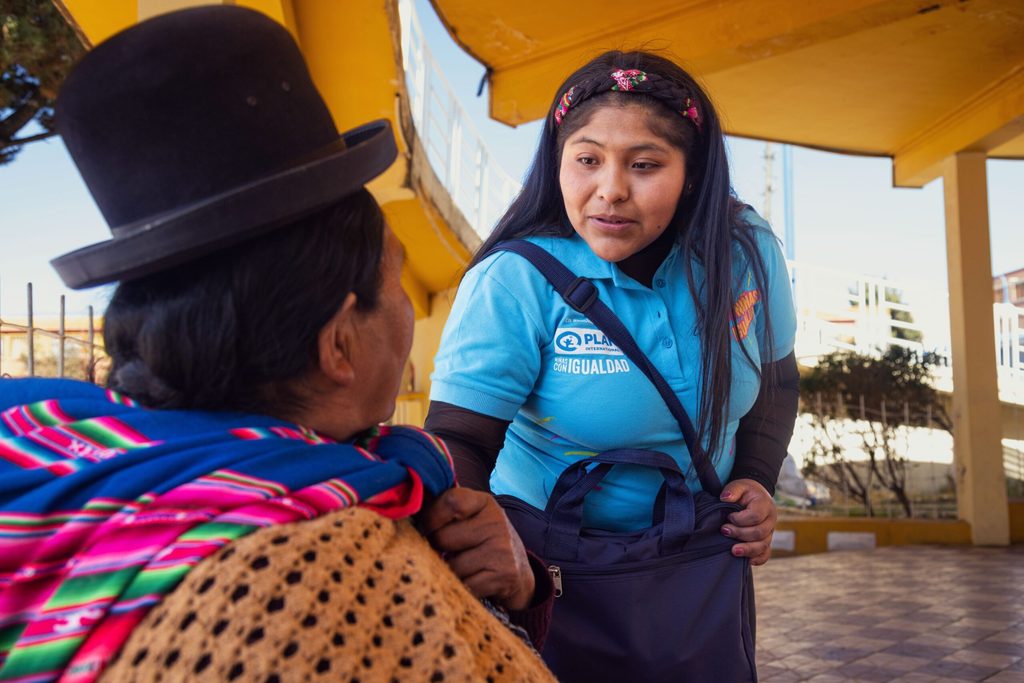
In her community, both government authorities and indigenous and native leaders know and respect Camila. Her ability to interact with both groups has helped her push for transformations, build alliances and foster an intergenerational dialogue.
It is also a way for her to address youth issues that would otherwise be difficult to discuss. One of these issues is the promotion of sexual and reproductive rights among adolescents and young people.
According to data from 2023, every day 90 teenage pregnancies are registered in Bolivia. Many of them are the result of sexual abuse. However, in other cases the lack of access to information and contraceptive methods also plays a role.
The high rate of teenage pregnancy has a deep social impact. With regard to access to education, for example, only one out of every 10 women who falls pregnant as a teenager manages to go to university.
These consequences are even worse in rural environments that already face higher levels of precariousness.
The community assembly
There is absolute silence. Camila looks around, a bit nervous. “I made a mistake, this is wrong,” she keeps repeating to herself.
Before she started, her hands and feet were shaking. The community assembly proceeded slowly and the young woman’s turn to speak seemed to never come.
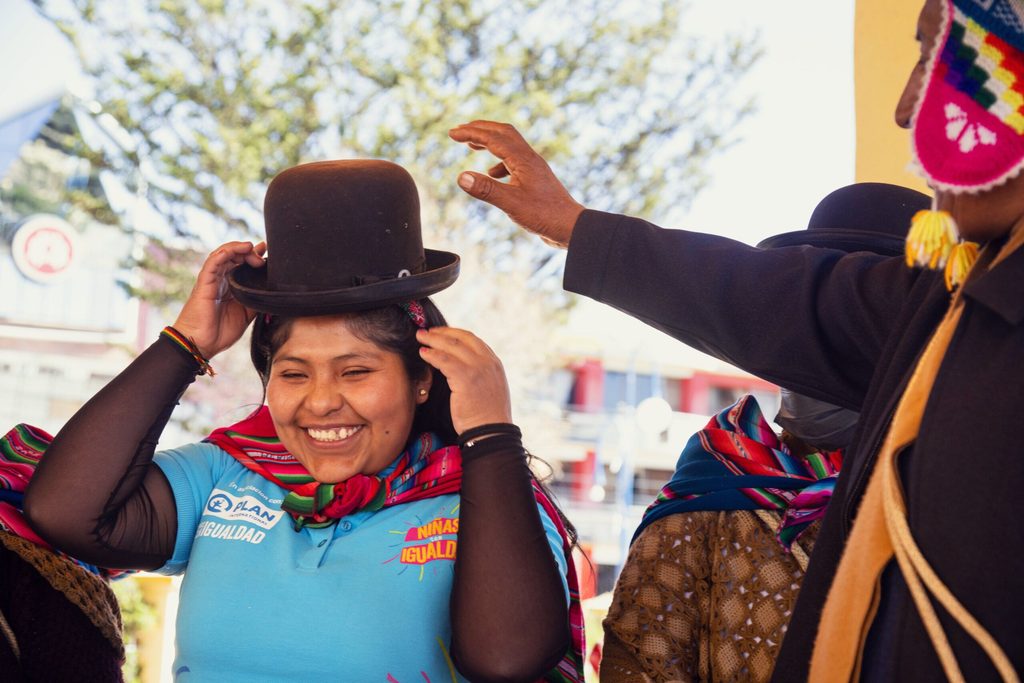
Camila was about to leave, but her friends encouraged her.
“We are a youth organisation, we work around advocacy and we have won a project to build the Youth Centre,” she said when her turn came, her voice still trembling.
Camila
“We need the population to support us to get a plot of land (for building the youth space),” she concluded and, for just a moment, as she herself recounts, the world around her stopped. Silence.
Suddenly, the room erupted in applause and people all congratulated her.
Camila smiled, part relieved, part excited. Not only did her community listen to her attentively, they were also willing to support construction of the Youth Centre.
“Where are we going to build it?” asked someone in the audience. “I want to send my son there,” said another mother.
From being bullied in school to being a leader for transformation
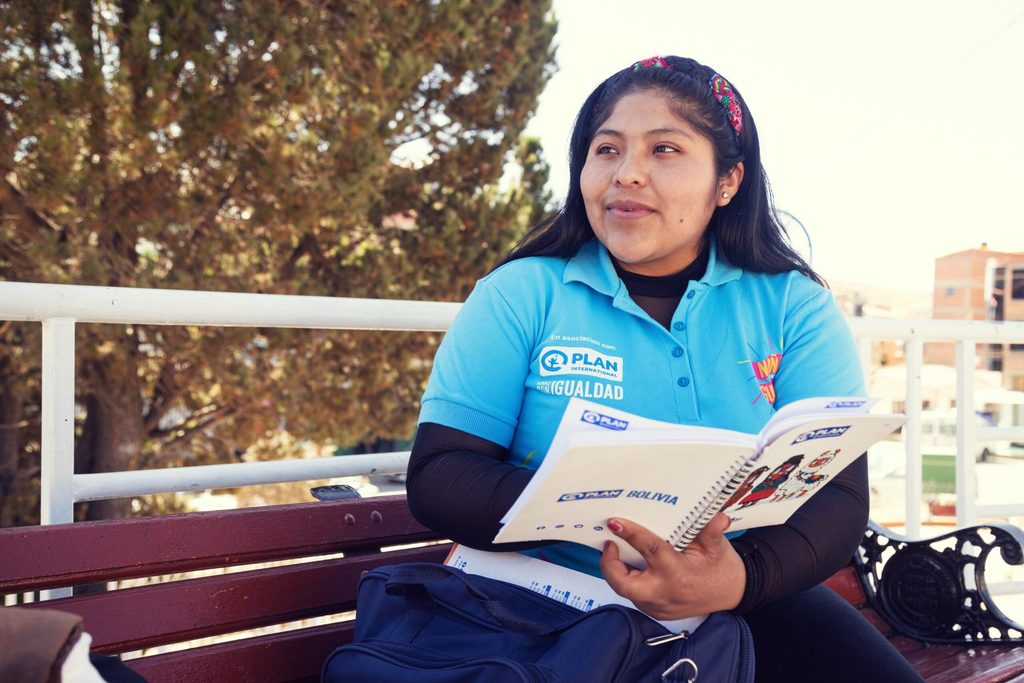
Camila is a leader and founder of youth network “Alfa y Omega”. The organisation brings together young people from her municipality in all kinds of activities to promote their participation in decision-making spaces and advocacy for their sexual and reproductive rights.
She is also a facilitator and activist in several youth platforms and organisations. In 2023 she was elected honorary director of Plan International Bolivia.
“I will always say this: Plan has changed my life,” says Camila.
She still remembers the first Plan International Bolivia projects in which she participated more than four years ago.
At the time, Camila was bullied and discriminated at school.
“It was normalised and that’s what I did not like,” recalls Camila, expressing her discontent with that situation.
Hearing about gender equality in an environment she still considers to be machista today, was an eye-opening and emancipating experience for Camila.
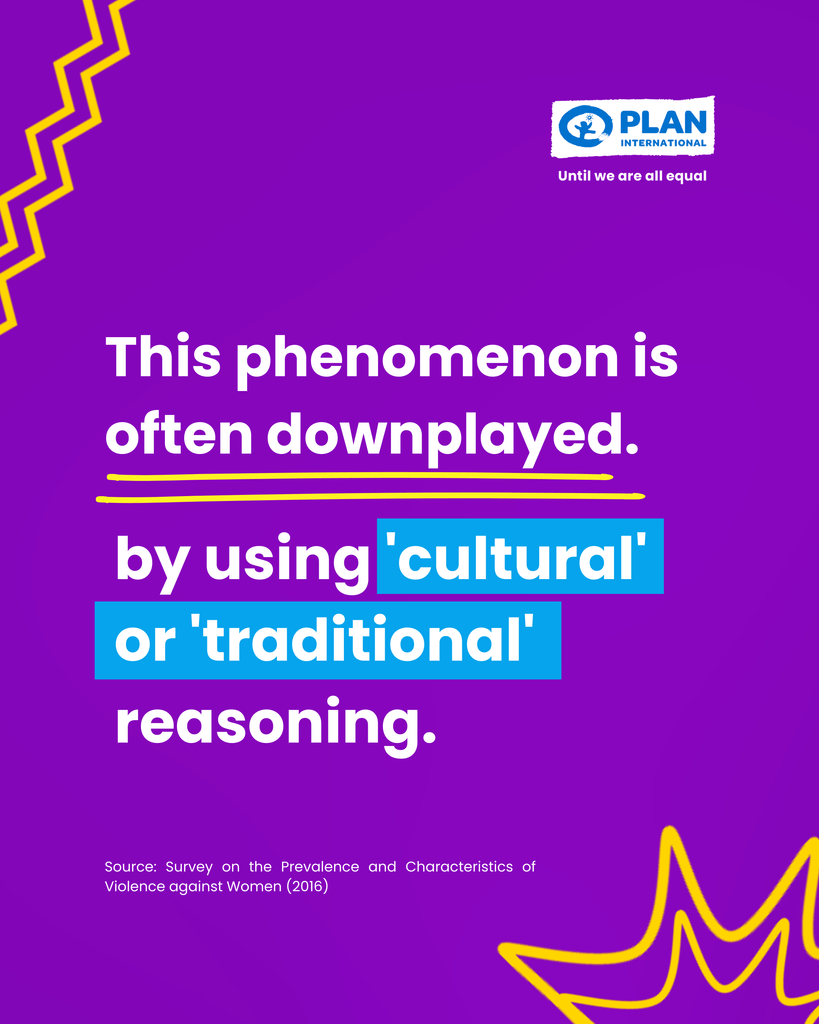
These were the key words that led her to become involved with the ARRIBA project of Plan International Bolivia.
This project helped 8,663 adolescents strengthen their capacities and skills to exercise their sexual and reproductive rights. And it promoted the creation of six adolescent networks which more than 200 young people joined.
This is how Camila began her leadership journey that took her across all kinds of initiatives, training courses and other transformative experiences.
Today, Camila is focused on promoting a generational change in the leadership of her community and other nearby towns.
Inspire to carry on with the transformations
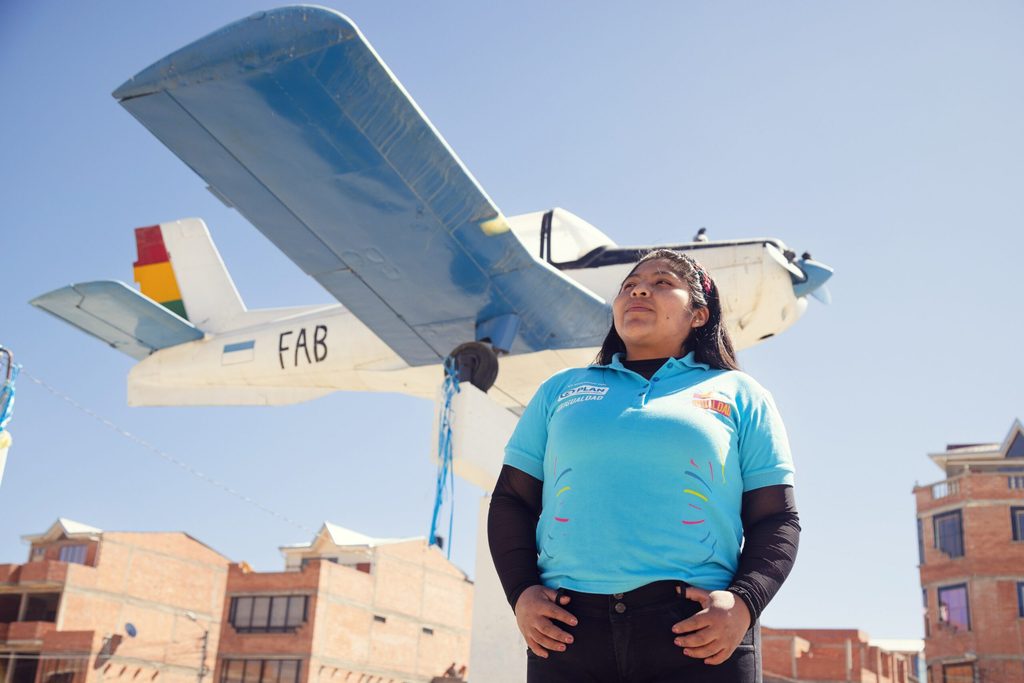
“That is what happens in all rural municipalities: we migrate to the city to study and look for a better future for ourselves and our families. And sometimes, in some networks, there is no one left to provide guidance or continue to further new leaderships,” analyses Camila.
This migration is due to the lack of economic and academic opportunities.
According to the Ministry of Education (2020), universities in rural areas offer limited opportunities and do not have an ideal infrastructure, technology or bibliographic resources.
Despite these obstacles and “being forced” to emigrate, women leaders like Camila work hard to keep pushing forward changes in their communities.
Camila is currently studying law and one of her goals is to be able to offer legal advice to victims of violence in her municipality and share information to inspire and empower new women leaders.

